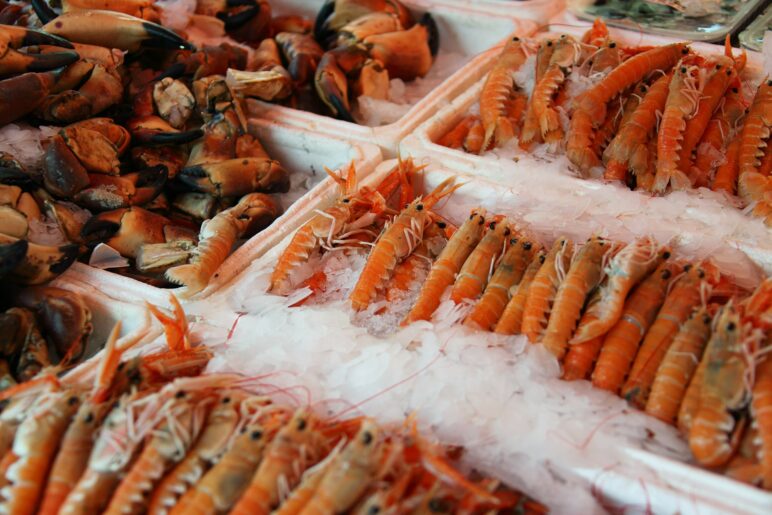Retail outlets for decapod crustaceans range from local independent fishmongers to national and international supermarket chains.
Seafish data from March 2023 shows that over 67% of seafood consumed in the UK was purchased through retailers (1).
As the largest and most significant public outlet for the seafood industry, retailers are susceptible to scrutiny over the welfare of decapod crustaceans in their supply chains. With consumers becoming more concerned about the sustainability and treatment of all live animals in our food production systems, it is increasingly important that retailers work with fisheries, processors, suppliers and transporters to ensure that decapod welfare standards are addressed as understanding of these animals’ complex needs develops.
The legal recognition of decapod sentience in the UK marked the beginning of a transition toward greater expectations for the humane treatment and handling of these species. However, with change comes opportunity. Not only do welfare improvements result in less harm to decapods but there is a growing body of evidence to show that better welfare standards improve the quality and value of shellfish stocks.







